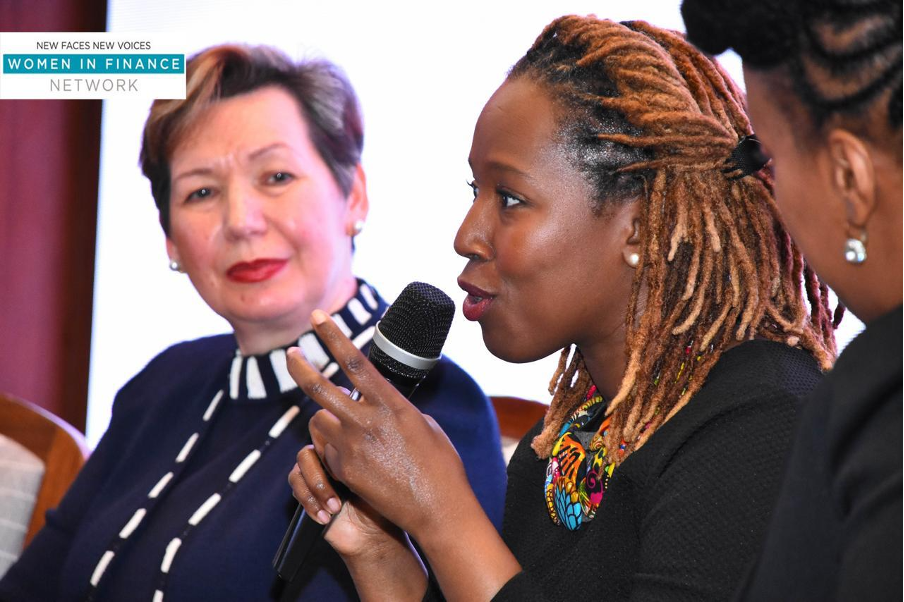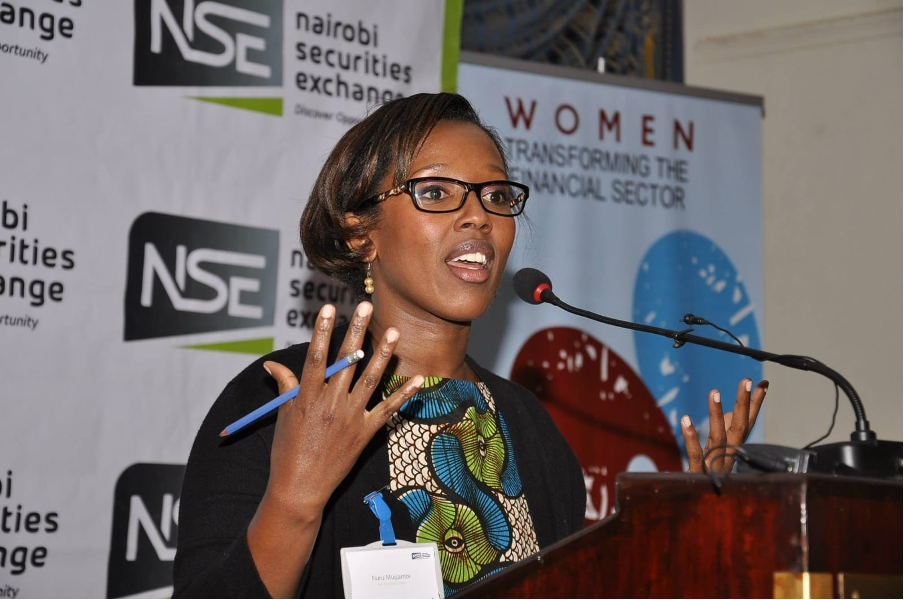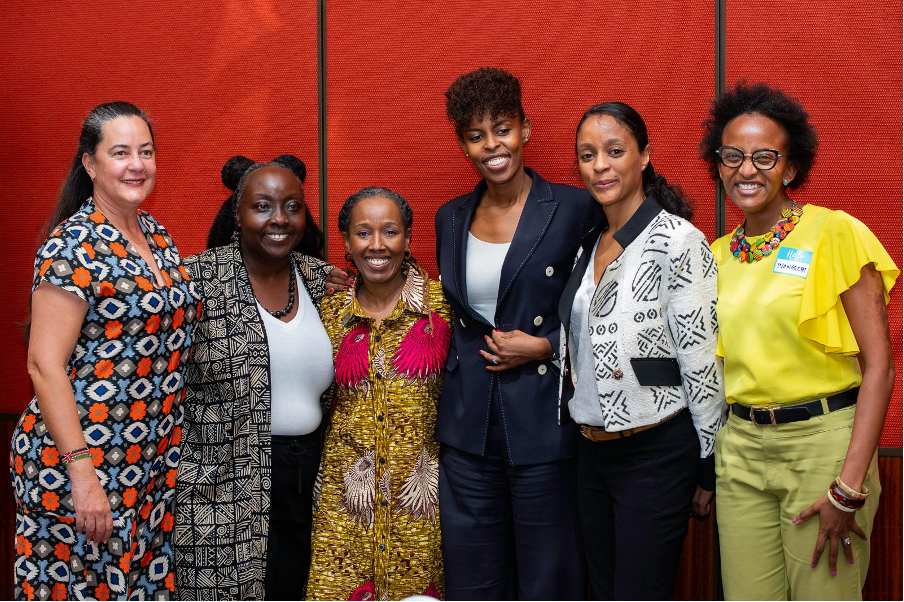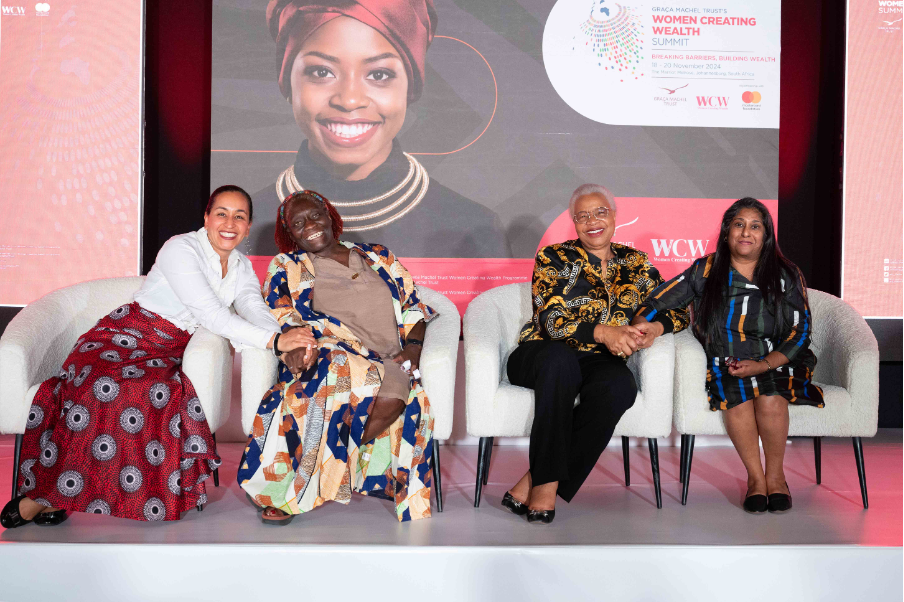Highlights
The focus of the Graça Machel Trust’s Nutrition Programme is to place nutrition high on the agenda of governments and civil society as a key development issue, with the overall aim of ensuring improved nutrition outcomes for the continent.
Our advocacy efforts are aimed at creating greater awareness and political commitment for effective food security and nutrition programmes in Southern Africa, with a special emphasis on Malawi, Mozambique and Tanzania.
The prevalence and consequences of malnutrition and under-nutrition, stunting, morbidity and mortality although well documented, are not yet fully understood. The impact of chronic malnutrition is of particular concern in Africa, where lasting effects on the cognitive and physical development of children and their families has inadvertently led to the stunted development of families and societies.
Good nutrition is important to the progress of Education, Health, Employment, Women’s Empowerment, and in Ending Poverty and Reducing Inequality. Women’s advancement is critical to ending malnutrition.
Why does nutrition matter?
The right nutrients for both mother and baby in the first 1,000 days from conception to the second birthday set the stage for physical, emotional and intellectual development for that child’s entire life.
The first 1 000 days
Good nutrition in the 1 000 days throughout a woman’s pregnancy and up to a child’s 2nd birthday sets a solid foundation for all the days of life that follow.
Improving nutrition during the first 1,000 days after conception is recognised as being one of the best and most cost-effective investments that can be made to achieve lasting progress in global health and development.
Small steps for both mother and child – proven to be effective – can make a big difference collectively. These include promoting early and exclusive breastfeeding; educating mothers about health and diverse diets for their babies and good hygiene practices.
Malnutrition
Malnutrition is a global issue that affects one out of every three people, and the number 1 driver for the global burden of disease. A child with severe acute malnutrition is nine times more likely to die from common infections (e.g. malaria, pneumonia, diarrhoea).
How we work
At global, regional and national levels in Africa, with a special emphasis on Malawi, Mozambique and Tanzania, to improve the nutrition governance.
In partnership with and through national civil society nutrition alliances and networks; by building their capacity and strengthening their voice.
Engage leaders at all levels to develop and apply evidence-based policies on nutrition.
Promoting multisectoral interventions that improve the provision of nutritious food for pregnant mothers and children.

















 The Trust supports and mobilises civil society networks on issues of ending child marriage, ending violence against children, ending female genital mutilation and promoting children’s rights, to carry out advocacy and action across Africa. Special focus is placed on Malawi, Mozambique, Tanzania and Zambia where child marriage continues to be a problem largely driven by poverty, gender inequality, harmful traditional practices, conflict, low levels of literacy, limited opportunities for girls and weak or non-existent protective and preventive legal frameworks.
The Trust supports and mobilises civil society networks on issues of ending child marriage, ending violence against children, ending female genital mutilation and promoting children’s rights, to carry out advocacy and action across Africa. Special focus is placed on Malawi, Mozambique, Tanzania and Zambia where child marriage continues to be a problem largely driven by poverty, gender inequality, harmful traditional practices, conflict, low levels of literacy, limited opportunities for girls and weak or non-existent protective and preventive legal frameworks.




 Education is a fundamental right for all children, which is also a vehicle for social, economic and political transformation in communities, countries and the African continent at large. Recent studies indicate a lack of progress in some of the critical commitments aimed at improving education quality, access, retention and achievement, particularly for girls. In most African countries, girls may face barriers to learning, especially when they reach post-primary levels of education. By implementing multi-dimensional approaches to education which includes core education, personal development, life skills and economic competencies, the Trust partners with funding partners, governments, civil societies and the private sector to improve education access.
Education is a fundamental right for all children, which is also a vehicle for social, economic and political transformation in communities, countries and the African continent at large. Recent studies indicate a lack of progress in some of the critical commitments aimed at improving education quality, access, retention and achievement, particularly for girls. In most African countries, girls may face barriers to learning, especially when they reach post-primary levels of education. By implementing multi-dimensional approaches to education which includes core education, personal development, life skills and economic competencies, the Trust partners with funding partners, governments, civil societies and the private sector to improve education access.

 The Nutrition and Reproductive, Maternal, New-born, Child and Adolescent Health and Nutrition, (RMNCAH+N) of the Children’s Rights and Development Programme aims at promoting the Global Strategy for women, children and adolescents’ health within the Sustainable Development Goals (SDG) agenda. The strategy emphasises on the importance of effective country leadership as a common factor across countries making progress in improving the health of women, children and adolescents.
The Nutrition and Reproductive, Maternal, New-born, Child and Adolescent Health and Nutrition, (RMNCAH+N) of the Children’s Rights and Development Programme aims at promoting the Global Strategy for women, children and adolescents’ health within the Sustainable Development Goals (SDG) agenda. The strategy emphasises on the importance of effective country leadership as a common factor across countries making progress in improving the health of women, children and adolescents. Through its Early Childhood Development (ECD) plan, The Trust will seek to put into action the new science and evidence Report that was presented by Lancet Series on Good and early development – the right of every child. This will be achieved by mobilising like-minded partners to contribute in the new science and evidence to reach all young children with ECD. The Trust’s goal is to be a catalyst for doing things differently, in particular, to rid fragmentation and lack of coordination across ECD sectors. In response to evidence showing the importance of political will in turning the tide against the current poor access and quality of ECD. Even before conception, starting with a mother’s health and social economic conditions, the early years of a child’s life form a fundamental foundation that determines whether a child will survive and thrive optimally.
Through its Early Childhood Development (ECD) plan, The Trust will seek to put into action the new science and evidence Report that was presented by Lancet Series on Good and early development – the right of every child. This will be achieved by mobilising like-minded partners to contribute in the new science and evidence to reach all young children with ECD. The Trust’s goal is to be a catalyst for doing things differently, in particular, to rid fragmentation and lack of coordination across ECD sectors. In response to evidence showing the importance of political will in turning the tide against the current poor access and quality of ECD. Even before conception, starting with a mother’s health and social economic conditions, the early years of a child’s life form a fundamental foundation that determines whether a child will survive and thrive optimally.